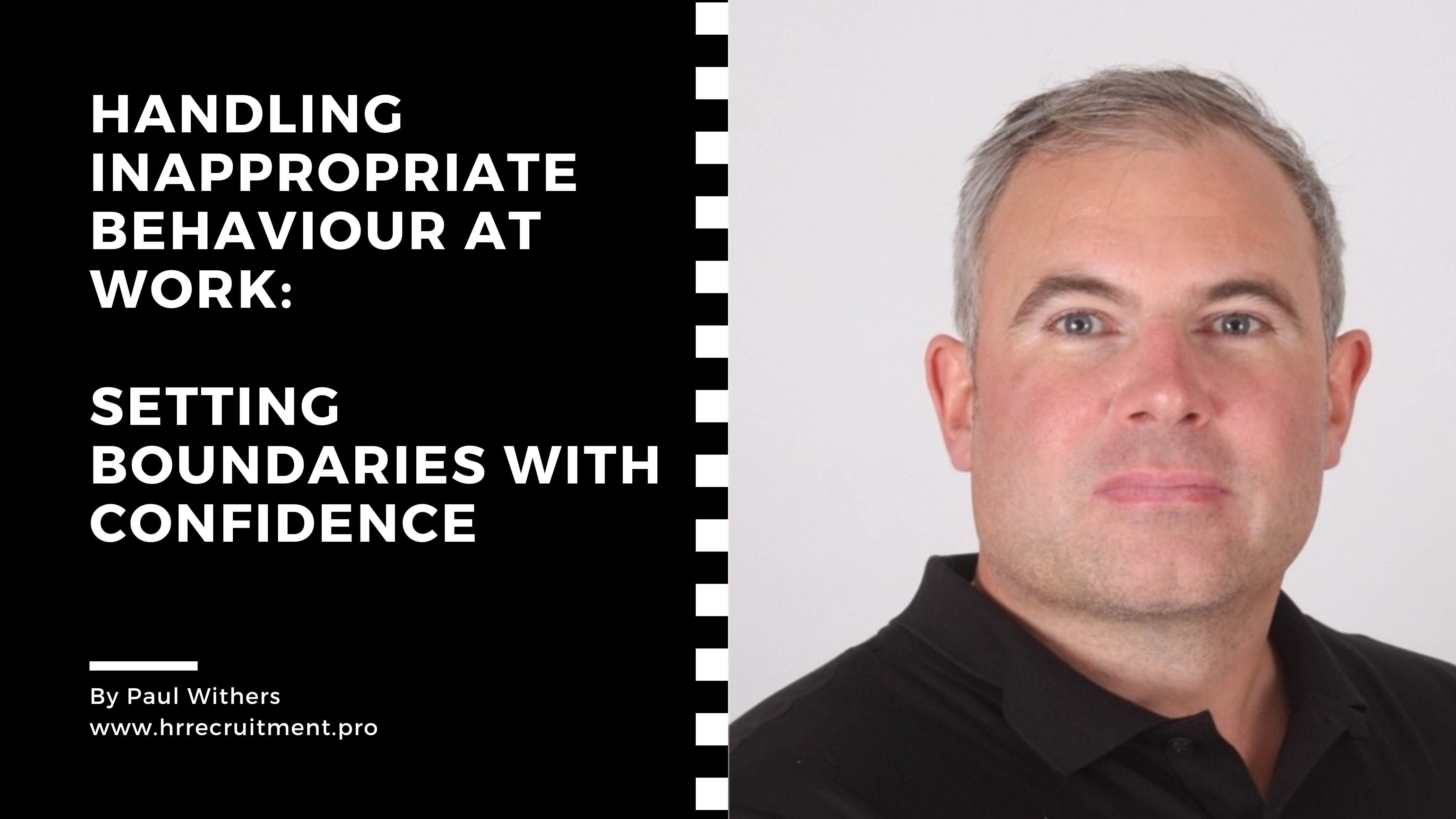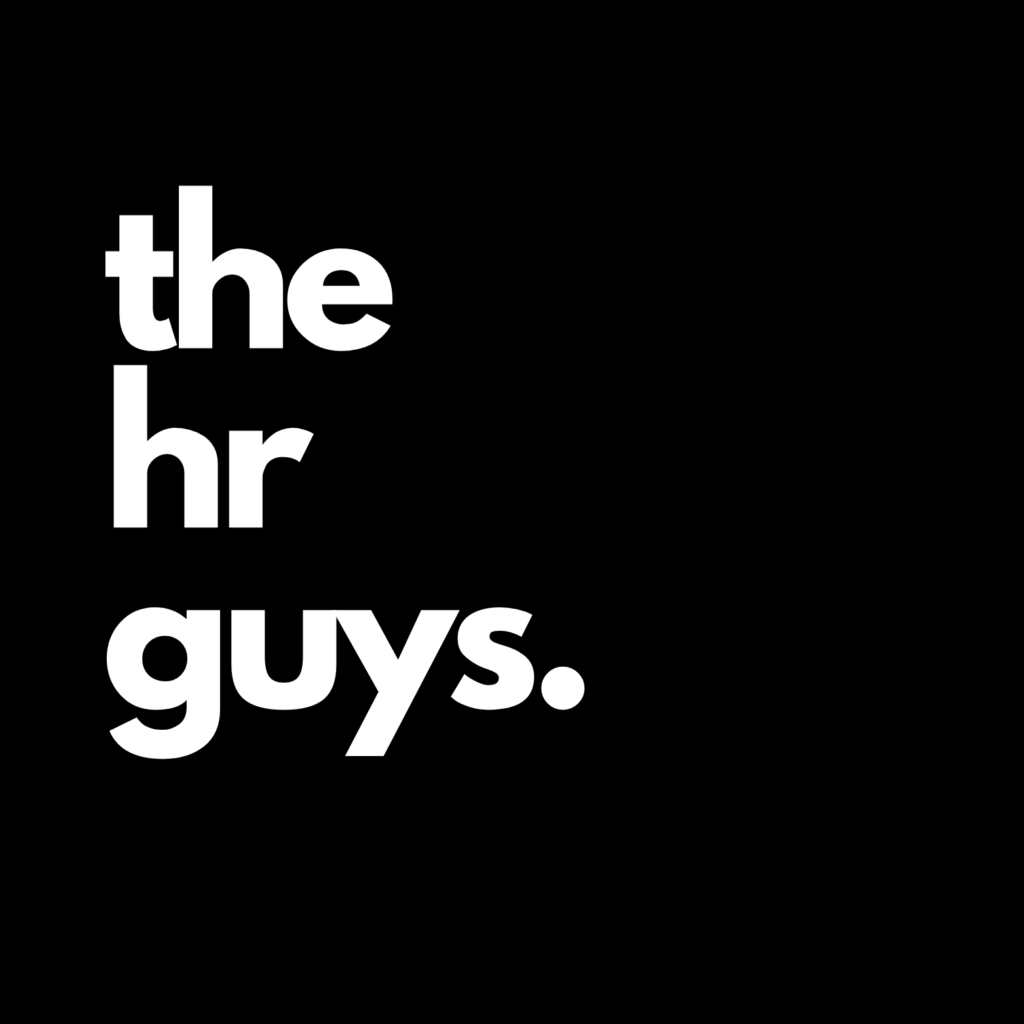Handling Inappropriate Behaviour at Work: Setting Boundaries with Confidence
Work should be a place where you feel respected, valued, and safe. Unfortunately, that’s not always the reality. Whether it’s an inappropriate comment, an uncomfortable joke, or something more serious, dealing with unwanted behaviour at work can be tricky—especially if you’re unsure how to respond.
First things first: You are not alone in this. If you’re struggling with inappropriate behaviour at work, remember that you have friends, family, and trusted people in your life who can support you. You don’t have to deal with it on your own. If you’d rather talk to someone outside of your immediate circle, there are also external organisations and professionals who can help. And if you ever need workplace-specific advice, I have a network of experienced employment law and HR professionals who would happily lend a listening ear. Whatever you’re facing, there are always people willing to support you—so please don’t hesitate to reach out.
At The HR Guys, we are committed to workplace equality. This is reflected in our inclusive approach to recruitment, where we strive to produce fair and diverse candidate shortlists. But true equality doesn’t stop at hiring—it means ensuring that workplaces are safe, respectful, and welcoming for everyone. That’s why it’s so important to address inappropriate behaviour when it happens.
It’s Not Just You – And It’s Not Okay
If someone has made you uncomfortable at work, you’re not being “too sensitive” or “overreacting.” If it doesn’t sit right with you, then it’s worth addressing.
Unwanted behaviour—whether subtle or blatant—can chip away at your confidence and make work a stressful place. You might feel pressure to ignore it, brush it off, or even laugh along just to keep the peace. But here’s the bottom line: you don’t have to put up with it.
Recognising When Something Isn’t Right
Some inappropriate behaviour is easy to identify, like an obviously sexist comment or an unwanted touch. Other times, it’s more subtle—a colleague making a ‘joke’ that leaves you feeling uneasy, someone standing too close during conversations, or a persistent message sent outside of working hours that doesn’t seem work-related.
If you feel uncomfortable, trust your instincts. You don’t need to justify why something feels inappropriate. It’s enough to know that it does. A workplace should be professional, and if someone is behaving in a way that makes it difficult for you to feel comfortable, you have every right to address it.
The Power of a Firm Response
If you feel safe doing so, calling out inappropriate behaviour in the moment can be one of the most effective ways to shut it down. You don’t need a long speech—sometimes, short and firm responses work best.
Saying something like, “Let’s keep this professional,” or “I’d rather not discuss that at work,” is often enough to make the other person realise they’ve crossed a line. If they push back with “It was just a joke” or try to dismiss your feelings, you can respond with a calm but clear, “I don’t find that funny.” You are not responsible for making them feel better about their behaviour.
Sometimes, people genuinely don’t realise they’ve said or done something inappropriate, and a quick correction can help. Other times, they know exactly what they’re doing and are testing boundaries. Either way, a firm response sets a clear message: you’re not engaging in it.
Keeping a Record – Just in Case
If the behaviour happens more than once or feels like it could escalate, it’s a good idea to start keeping a record. This doesn’t have to be anything formal—just jotting down what happened, when it happened, who was involved, and whether there were any witnesses can be useful if you ever need to report it.
Having notes means that if you do decide to speak to HR or a manager, you have clear details to refer to rather than relying on memory. It also protects you in case the person in question tries to downplay or twist the situation later on.
Talking to Someone Who Can Help
If the behaviour doesn’t stop, or if it’s making your work environment feel unsafe, it’s time to escalate it. Depending on your workplace, you could speak to HR, talk to your manager (if they’re not the problem), or confide in a trusted colleague who can support you.
If you’re unsure how to approach the conversation, focus on explaining what happened and how it has impacted you. You don’t have to prove that the behaviour was inappropriate—just stating how it made you feel is enough. If you’re nervous about speaking up, having your notes on hand can help you stay focused.
What If No One Takes It Seriously?
It’s frustrating, but sometimes people dismiss concerns with phrases like, “Oh, that’s just how they are,” or “It wasn’t meant like that.” If that happens, don’t let it discourage you. If your concerns aren’t being taken seriously, check your company’s grievance procedures—there may be a formal process for escalating complaints.
If your workplace fails to address the issue, external support is an option. There are legal organisations and workplace rights groups that can offer advice. In serious cases, it may be worth seeking legal guidance to understand your rights.
Setting Boundaries Like a Pro
You don’t owe anyone your time, energy, or patience when they’re making you uncomfortable. Staying professional doesn’t mean tolerating inappropriate behaviour. If someone continuously oversteps, shutting down conversations, removing yourself from situations, or making it clear you won’t engage can be powerful tools.
Confidence plays a big part in setting boundaries. You are allowed to take up space and expect to be treated with respect. Work is not a social free-for-all where people can say or do whatever they want without consequences. You deserve to feel safe.
You Are Never Alone in This
At The HR Guys, we believe that workplaces should be safe, inclusive, and respectful for everyone. Just as we work to create diverse and fair candidate shortlists, we also want to see companies fostering environments where employees feel valued, not undermined.
If you’re feeling lost or frustrated or just need someone to talk to, reach out. I have an amazing network of HR professionals and employment law experts who are more than happy to help. You don’t have to handle this alone.
Final Thoughts
If something at work is making you uncomfortable, trust yourself. Set boundaries. Seek support. And remember—you have every right to feel safe, respected, and valued at work.
And if you ever need help, you know where to find me.
Thank You
Thank you for taking the time to read my latest insights! I hope you found the information valuable and insightful. If you’d like to learn more about my mission, who I work with, and the services I offer, please visit my About page. For any inquiries, or suggestions, or to get in touch with me directly, feel free to reach out through my Contact page. I’m always here to help and look forward to connecting with you.
Stay tuned for more tips and updates on HR and Recruitment. Until next time, Happy HRing!
Warm regards,
Paul
You can connect with me on LinkedIn or check out my recruitment projects at The HR Guys | Interim HR Network | European Recruitment | Cambridge Recruitment





